JingYan NEWS
Building Love for Thalassemia Action Project Reaches 1,000 Cases: Supporting Life and Health with Love
Release time:
Jun 04,2024
Building Love for Thalassemia Action Project Reaches 1,000 Cases: Supporting Life and Health with Love

On May 29, 2024, at the 923rd Hospital of the Joint Logistic Support Force of the Chinese People's Liberation Army, a thalassemia patient, XIE *qi, who was undergoing hematopoietic stem cell transplantation, received a donation of 40,000 yuan from the Beijing Jingyan Foundation. This marks the 1,000th patient assisted by the Building Love for Thalassemia initiative since its launch in 2018. To date, the Beijing Jingyan Foundation has contributed a total of 44.39 million yuan in surgical and post-transplant treatment funds to support children suffering from severe thalassemia across China.
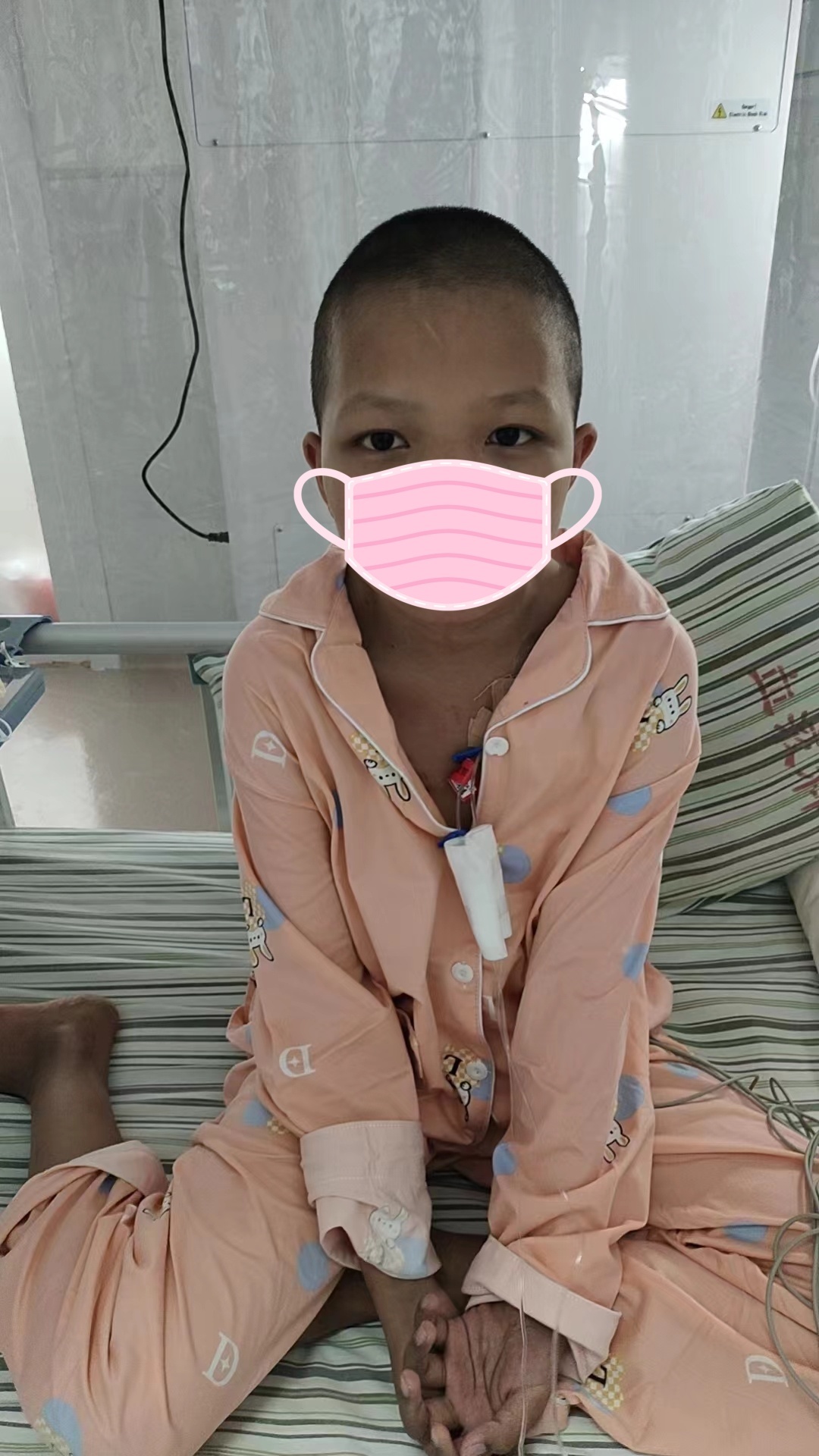
Over the past six years, the Building Love for Thalassemia Action project has provided critical aid to 1,000 thalassemia patients and conducted follow-up visits with nearly 500 children. Each time the team meets these children and their families, the most frequent words we hear are, “Thank you, ‘Mom SONG’! Thank you, Jingyan Foundation!” The “Mom SONG” these children refer to is Ms. SONG Yan, the founder and chairperson of the Beijing Jingyan Foundation.
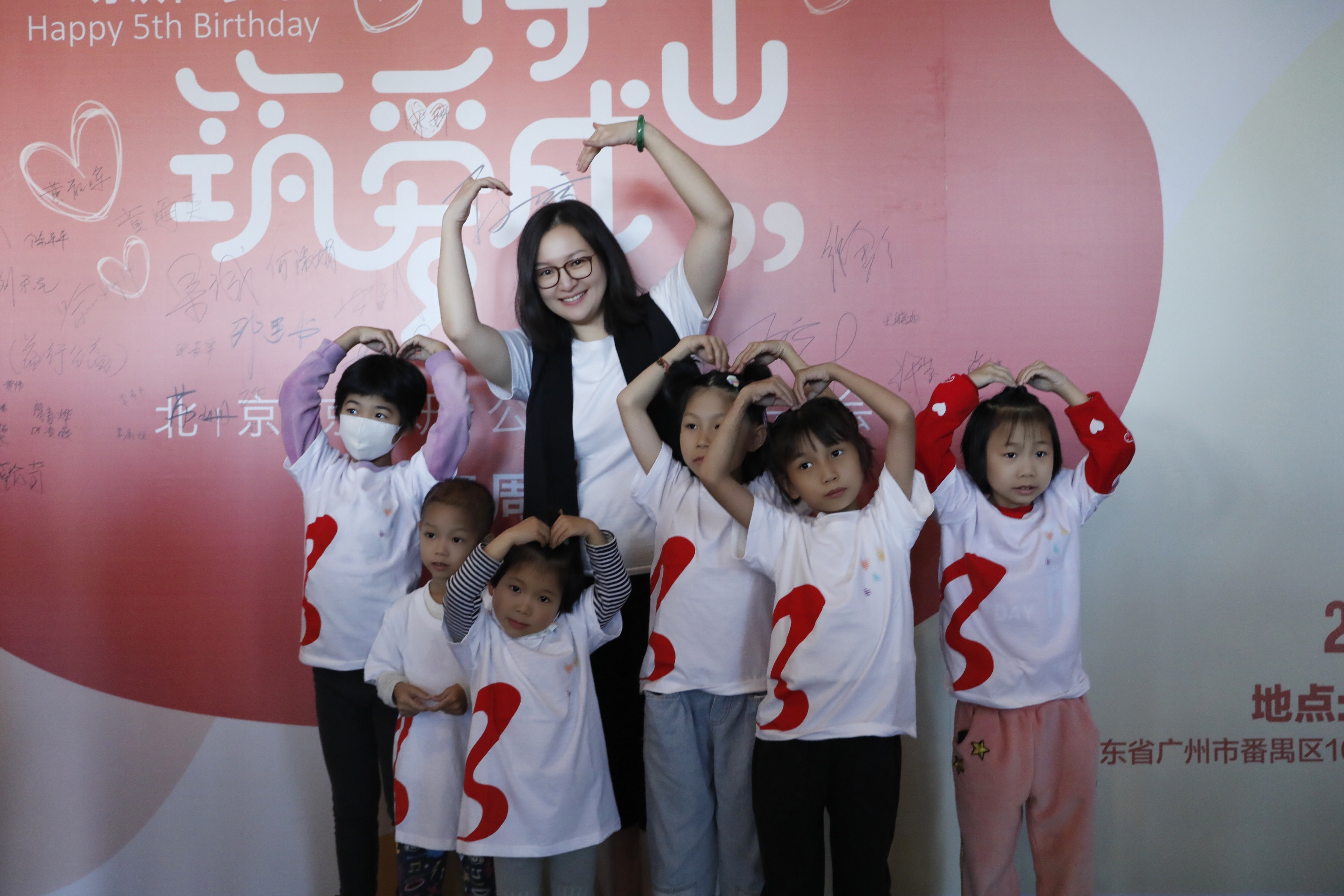
Thalassemia is a birth defect prevalent in Southern China. There are over 30 million thalassemia gene carriers in the country, and approximately 15,000 children suffer from severe thalassemia. Infants with severe thalassemia typically begin to show symptoms between 3 to 12 months old, often accompanied by complications such as liver and spleen enlargement and heart failure. Without blood transfusions and iron chelation treatment, most children with severe thalassemia do not survive past the age of 5.
For these children to survive, lifelong blood transfusions and iron chelation treatments are necessary. Studies show that nearly two-thirds of a severe thalassemia patient's daily life is consumed by these treatments.
Respect for life, prioritizing health, and protecting children—who embody the hope of families and the future of the nation—are core values for Ms. SONG Yan and her family. With profound reverence for life, Ms. SONG founded the Beijing Jingyan Foundation, a family-driven philanthropic organization dedicated to addressing life-threatening diseases such as thalassemia and congenital heart disease that affect children.
Prior to 2015, thalassemia assistance was not widely recognized, with only a handful of philanthropic organizations running related projects as secondary initiatives. However, in 2018, under Ms. SONG’s leadership, the Beijing Jingyan Foundation officially launched the Building Love for Thalassemia Action project, making thalassemia support a core focus of its work. The foundation sought to fill a significant gap, deepen its commitment, and refine its approach to helping suffering children and families overcome thalassemia and rebuild their lives.
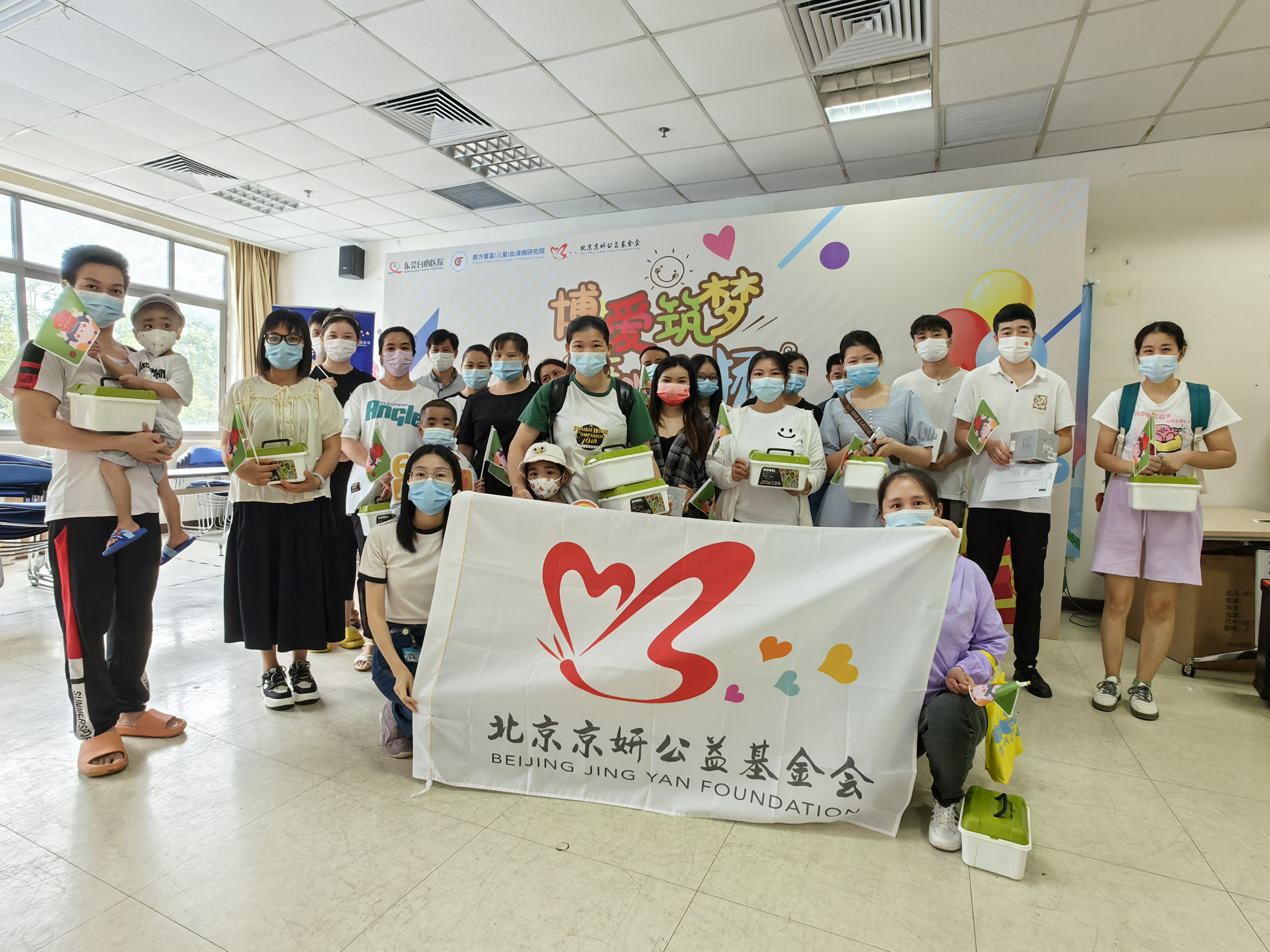
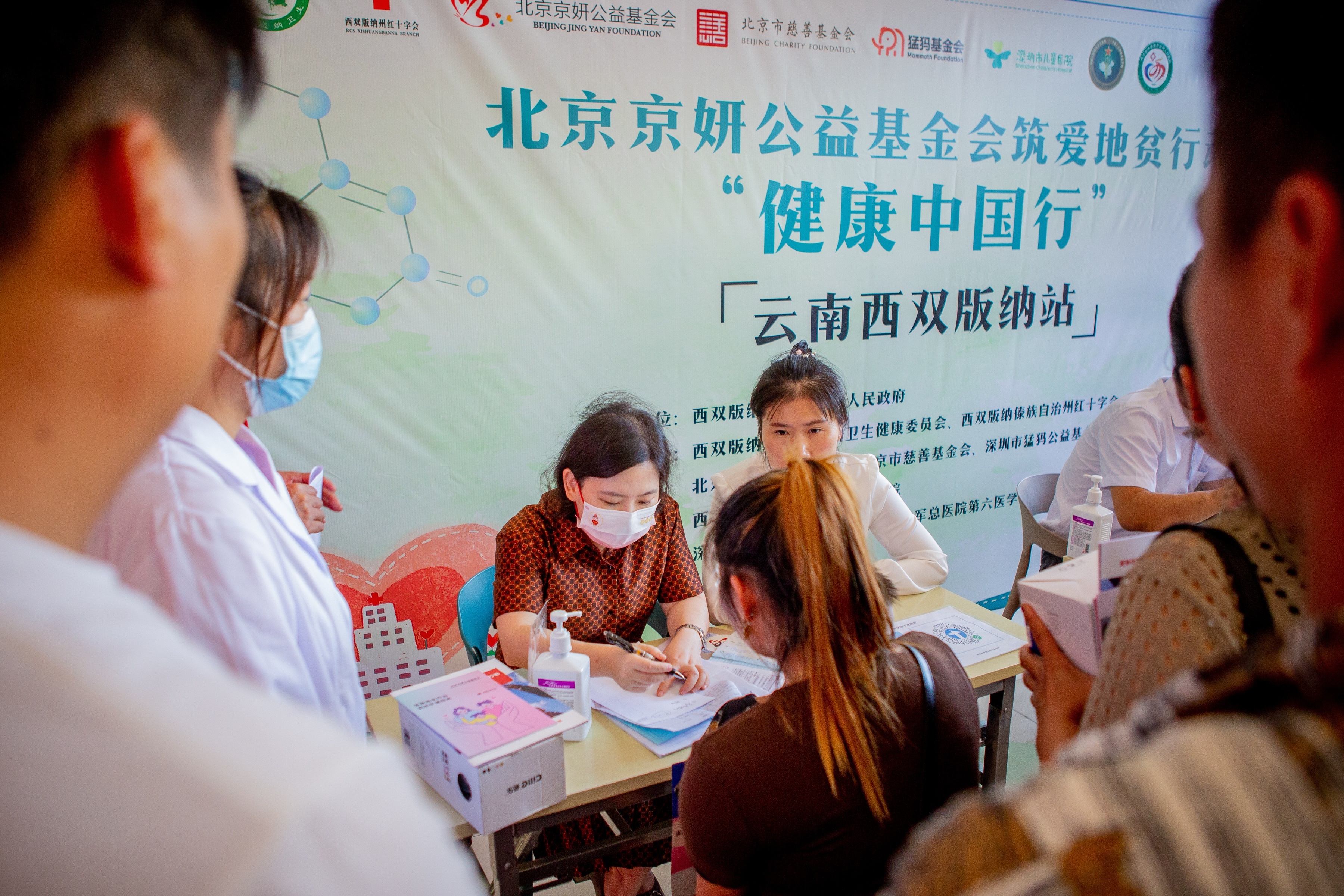
First and Foremost, Survive
Xiaoyan (a pseudonym), from Danzhou, Hainan, was the first thalassemia patient assisted by the Building Love for Thalassemia Action project in Hainan. Xiaoyan’s family has been farming for generations. Although their life is modest, they are a happy family. Like all new lives, Xiaoyan was eagerly awaited by the entire family. When he was born, his big eyes and cuteness brought much joy and laughter into the household.
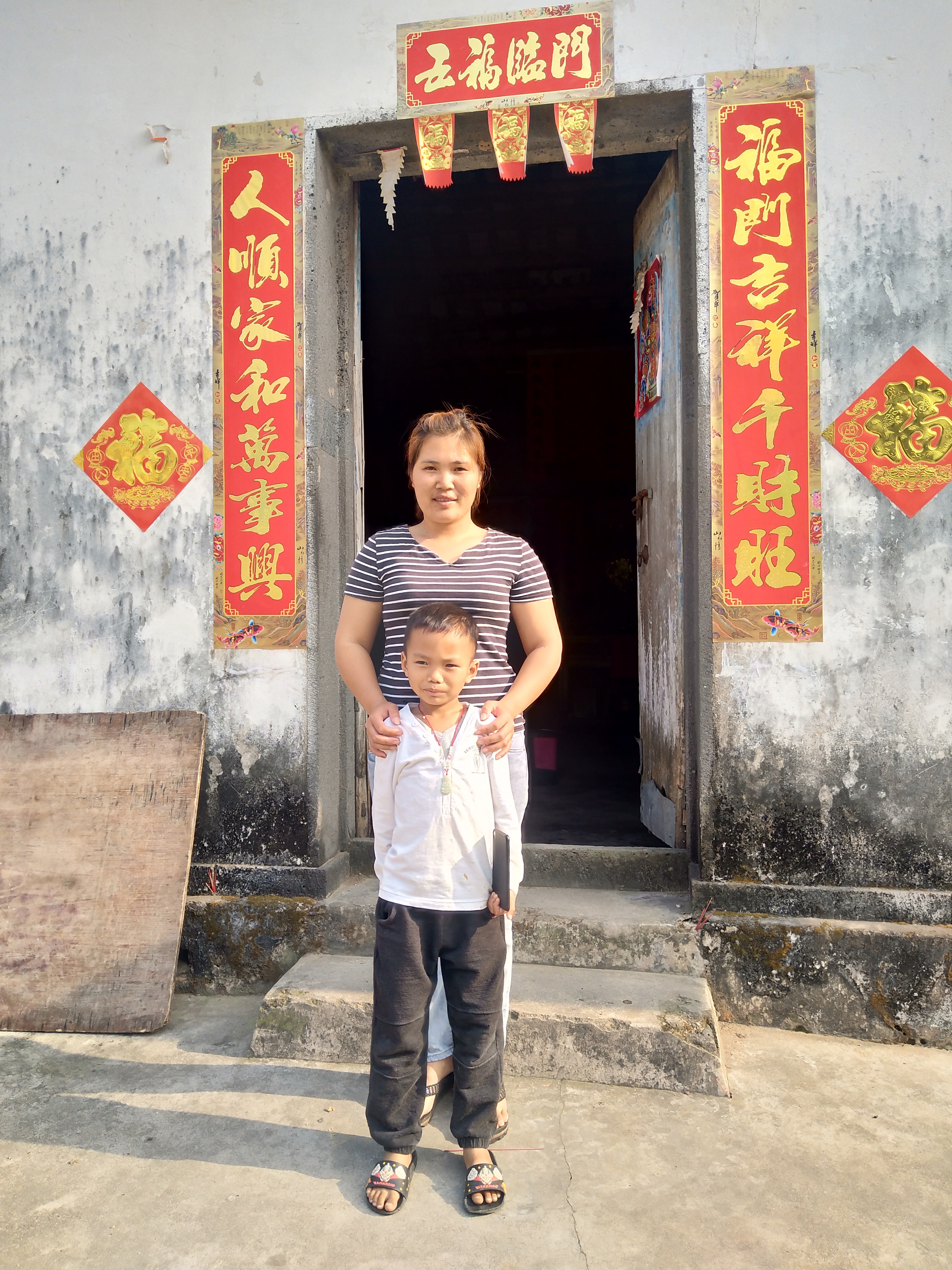
However, a few months later, Xiaoyan’s mother noticed that something was not right. Compared to other babies, Xiaoyan often had a yellowish complexion and frequently coughed, ran a fever, and needed constant hospital visits, sometimes even requiring hospitalization. Despite his parents’ optimism, thinking that "he would get better with time," Xiaoyan’s symptoms worsened. His complexion became even paler. When Xiaoyan turned two, his parents decided to take him to a large city for an examination.
The results were conclusive: Xiaoyan was diagnosed with "severe thalassemia," which would require lifelong blood transfusions and iron chelation therapy. For patients with severe thalassemia, the cost of lifelong treatment is estimated to be between 4 and 7 million yuan if they live to the age of 50. Hematopoietic stem cell transplantation is the only known cure, but it requires a compatible donor, is expensive, and carries certain risks, including the risk of death.
"Survival" is the top priority for children with severe thalassemia. From a young age, Xiaoyan frequently visited the hospital for blood transfusions. Although money was tight, his parents borrowed funds to cover the costs. However, the frequent injections and transfusions took a toll on them. Due to the anemia, thalassemia patients have very fine blood vessels, making it difficult to find veins for transfusions. From a young age, Xiaoyan endured countless needle pricks—first in his hands, then in his feet, followed by his stomach, neck, and forehead.
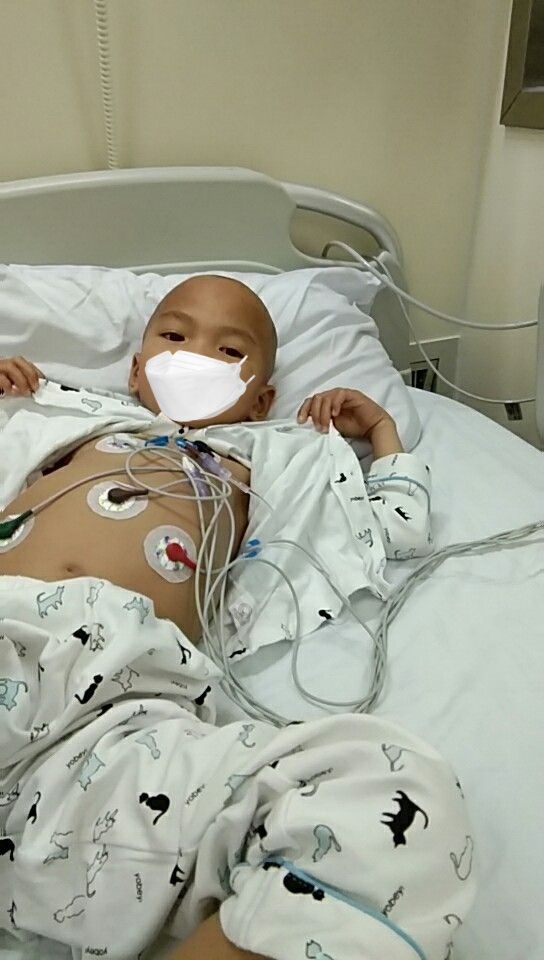
In order to help Xiaoyan live a normal life, his parents decided to find a suitable match for a hematopoietic stem cell transplant. The entire family underwent blood tests for matching, but only eight markers matched. Not discouraged, they asked relatives, including uncles and aunts, to undergo matching as well. Fortunately, Xiaoyan’s uncle was a perfect match.
The costs for years of blood transfusions and iron chelation therapy had pushed this already poor rural family into even deeper financial hardship. The transplant became the biggest obstacle to Xiaoyan’s survival. When the Building Love for Thalassemia Action project learned of Xiaoyan's situation, they quickly got in touch with the family, and their application was approved.
On April 27, 2018, the Beijing Jingyan Foundation transferred 50,000 yuan in aid to Xiaoyan's account at Hainan People's Hospital. With the help of other charitable organizations and individuals, Xiaoyan successfully underwent the transplant surgery. After a period of rehabilitation and follow-up treatment, Xiaoyan ultimately survived.
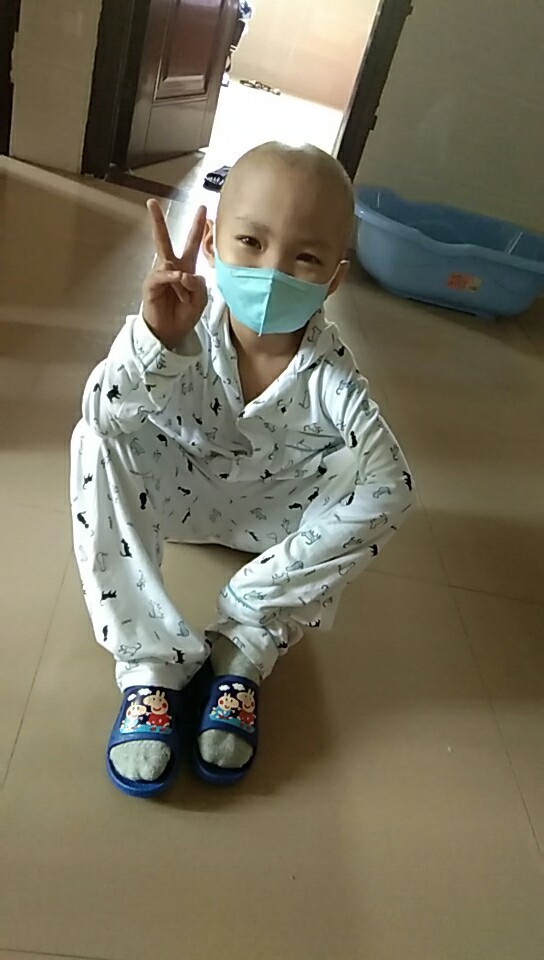
This is not just Xiaoyan's story, but also a reflection of the 1,000 children assisted by the Building Love for Thalassemia Action project over the past six years. The initiative has reached regions in China with a high incidence of thalassemia, employing a designated collaboration model with top children's hospitals, renowned general hospitals, and local medical institutions. It has provided crucial financial support for thalassemia patients from low-income families, enabling them to overcome the race against time and secure a chance at survival.
As a family-based Foundation, all donations to the Beijing Jingyan Foundation come from the personal income of Ms. SONG Yan’s family. This unique advantage, coupled with a pragmatic and low-profile approach, has allowed the Building Love for Thalassemia Action project to maintain a streamlined and efficient application process. The aid funds are directly allocated to the designated hospitals for treatment, ensuring they are used effectively and without delay. This efficiency in fund management has been the cornerstone of the project’s success, helping 1,000 thalassemia patients over the past six years.
The Root Lies in Changing Mindsets
In underdeveloped areas of provinces with a high incidence of thalassemia, the lack of social healthcare investment and shortage of population health resources make life and treatment even more challenging for thalassemia families. Many people are unaware of this disease, and frontline healthcare professionals lack professional knowledge and awareness of prevention and control. Some parents, even after their child is diagnosed with severe thalassemia, still treat it as just "anemia" and don't know how to pursue proper medical treatment.
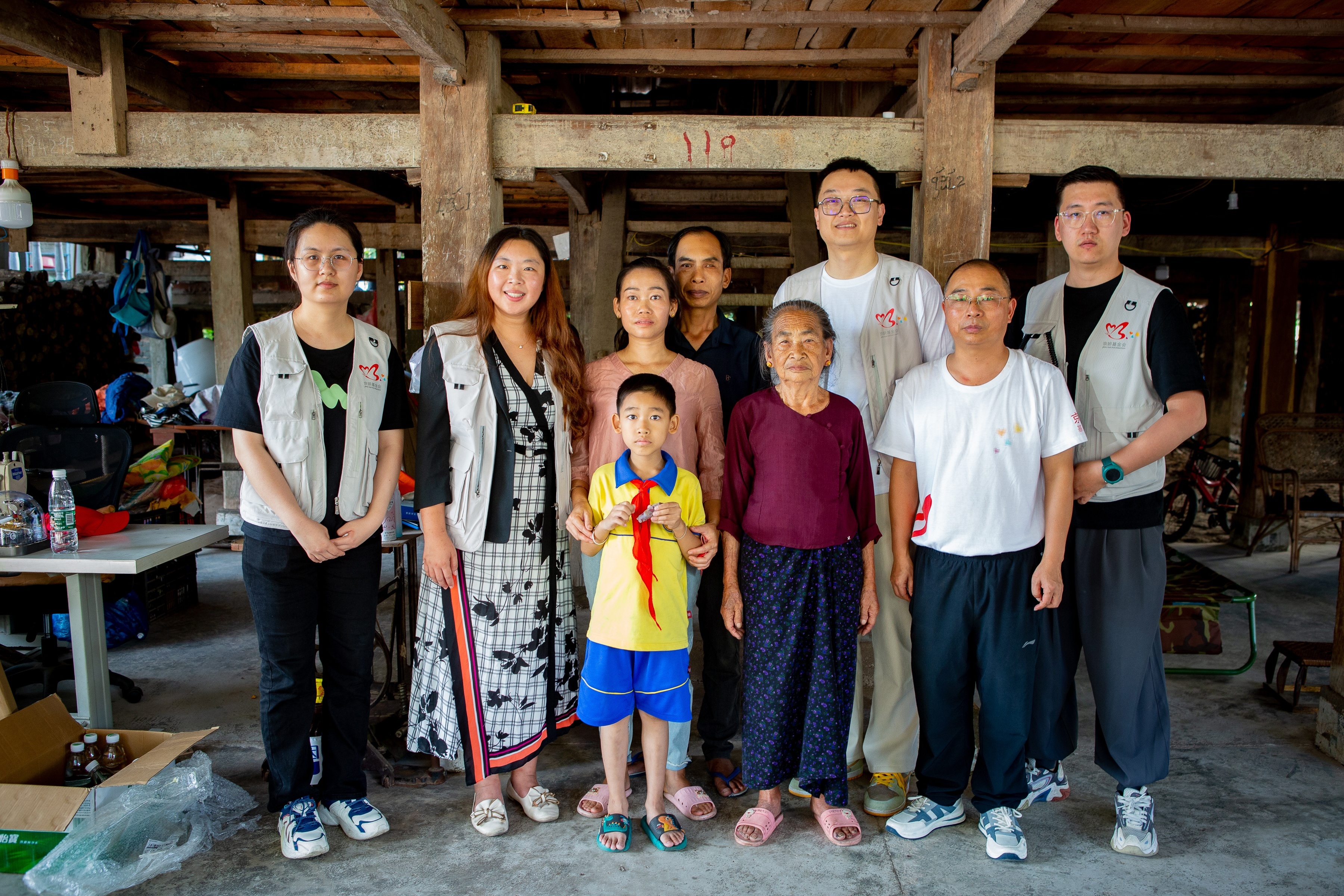
Xiaoyan (a pseudonym) was the first child assisted by the Building Love for Thalassemia Action project in Xishuangbanna. From the moment he was born, the hospital became like a "second home" for him. After birth, Xiaoyan exhibited symptoms such as jaundice and poor development, leading to diagnoses of jaundice, intestinal obstruction, and congenital megacolon. It wasn't until he was nine months old that Xiaoyan met an expert visiting the local hospital from Shanghai. After reviewing his medical history, the expert recommended that Xiaoyan's entire family undergo thalassemia screening. At that time, the cost of screening was 480 yuan. Given the family's financial constraints, Xiaoyan's parents could not afford to screen everyone and opted to test only Xiaoyan. Eventually, he was diagnosed with severe thalassemia.
This was the first time Xiaoyan’s parents had ever heard of thalassemia. The local doctor did not advise them to conduct regular blood tests, nor had they considered giving Xiaoyan regular blood transfusions. Xiaoyan frequently suffered from colds, coughs, and diarrhea, and his pale complexion, bloodless lips, and delayed growth were constant concerns for his parents.

When Xiaoyan turned two, his mother was invited by another parent to join a WeChat group of hundreds of parents whose children needed blood transfusions. The group discussions revolved around blood transfusions, iron chelation, bone marrow transplants, and more. It was only then that Xiaoyan’s mother learned the reality of his condition—that Xiaoyan had severe thalassemia and needed long-term, regulated blood transfusions and iron chelation to survive. Only a transplant could offer him a chance of a cure.

Thalassemia is a hereditary disease in which children born to two carriers of the same thalassemia gene have a 25% chance of being born with severe thalassemia. While the disease is challenging to treat, it is preventable. A comprehensive prevention strategy—including pre-marital and prenatal care, as well as early diagnosis and treatment of thalassemia—can significantly reduce the occurrence of severe thalassemia and even prevent its birth entirely.
However, due to a lack of awareness about thalassemia, many affected families end up with more than one child diagnosed with severe thalassemia.
Xixi, born in 2010 in Qinzhou, Guangxi, frequently had fevers at just six months old, requiring multiple hospital visits each month. The doctor told Xixi’s mother that her child might be anemic. Xixi's parents thought it might be due to malnutrition and hoped it would improve with time.
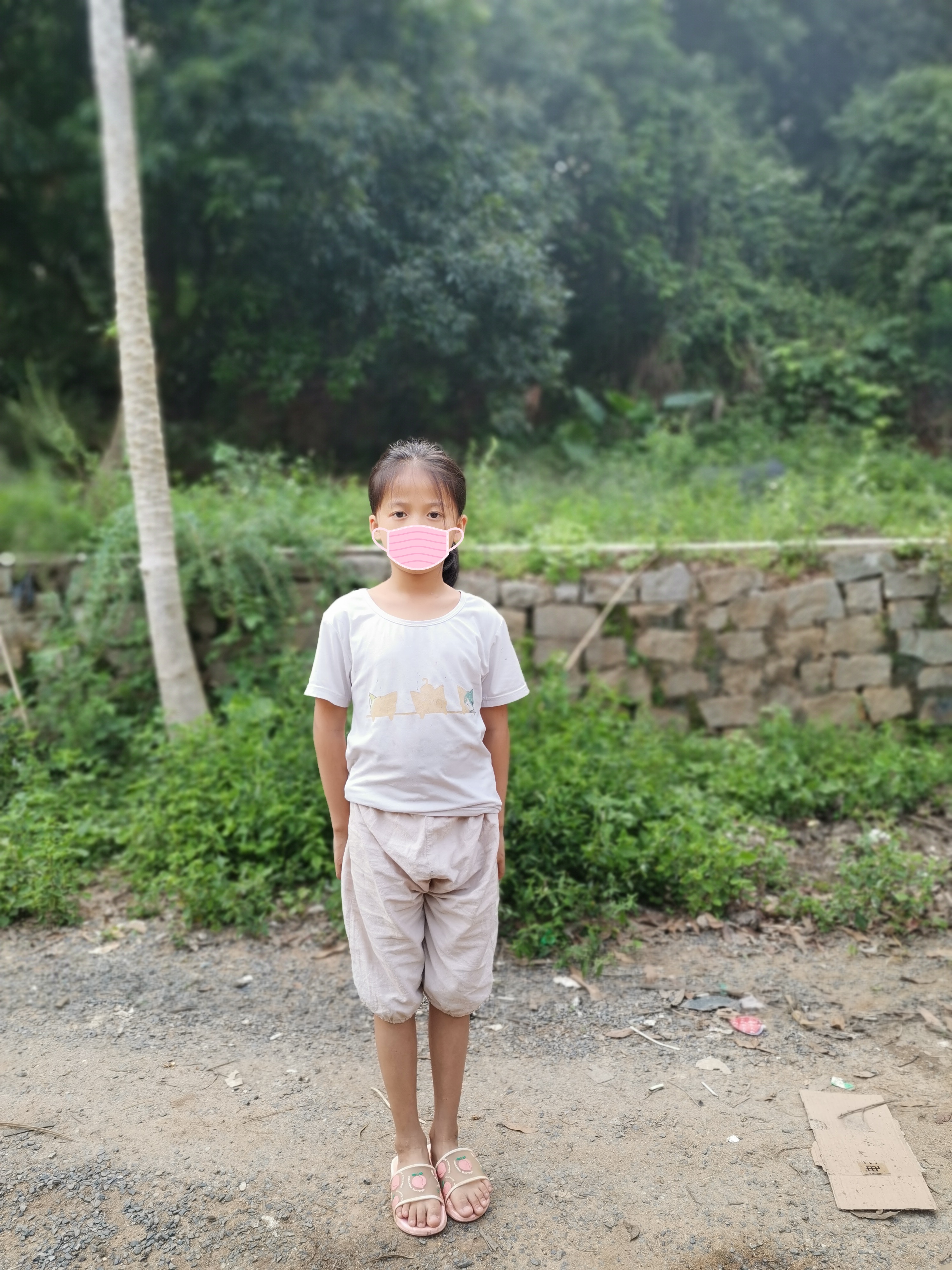
When Xixi was over two years old, her younger sister was born. Shortly after, the family noticed that the younger sister also seemed "off," frequently running a fever and having a yellowish complexion. The local doctor advised Xixi's parents to take both children to a larger hospital for further testing. After a series of tests, both Xixi and her sister were diagnosed with severe thalassemia.
A family with two children suffering from thalassemia faces more than just immense hardship. Due to blood shortages and financial constraints, Xixi and her younger sister struggled to maintain regular blood transfusions. They could only go when there was enough blood or money, and as a result, both children gradually developed thalassemia symptoms and complications.
Xixi and her sister are not isolated cases. In our experience, we have discovered that due to limited awareness of thalassemia, many children with the condition go undiagnosed for extended periods. Even when a diagnosis is made, many do not receive the appropriate, effective treatment they need. The widespread lack of knowledge about thalassemia means that many individuals have never undergone genetic screening for the disease, and even some families who are diagnosed lack proper awareness of prenatal care. In many regions, the birth rate of children with severe thalassemia remains high. Thus, while treating the disease is crucial, addressing the underlying mindset is equally essential.
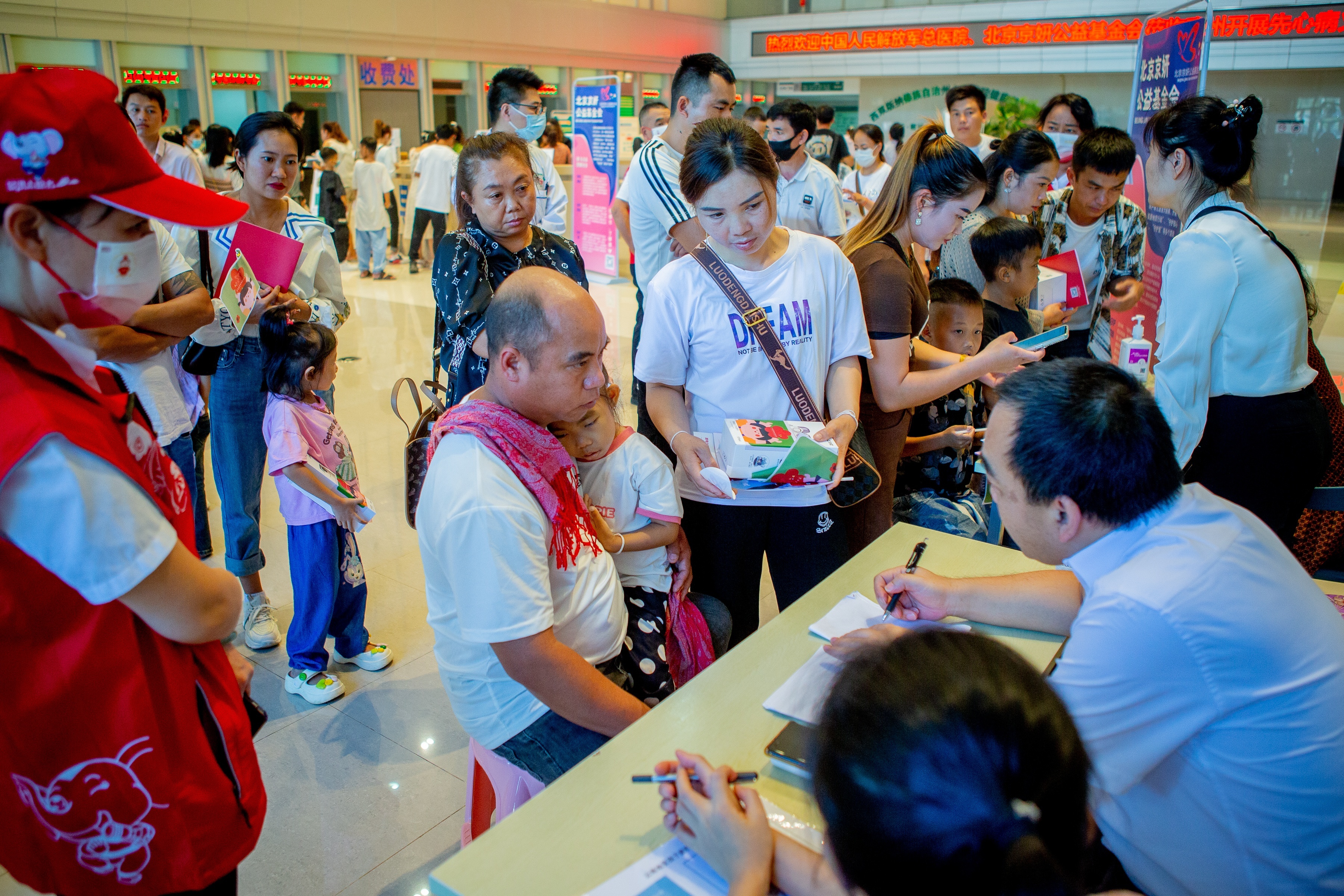
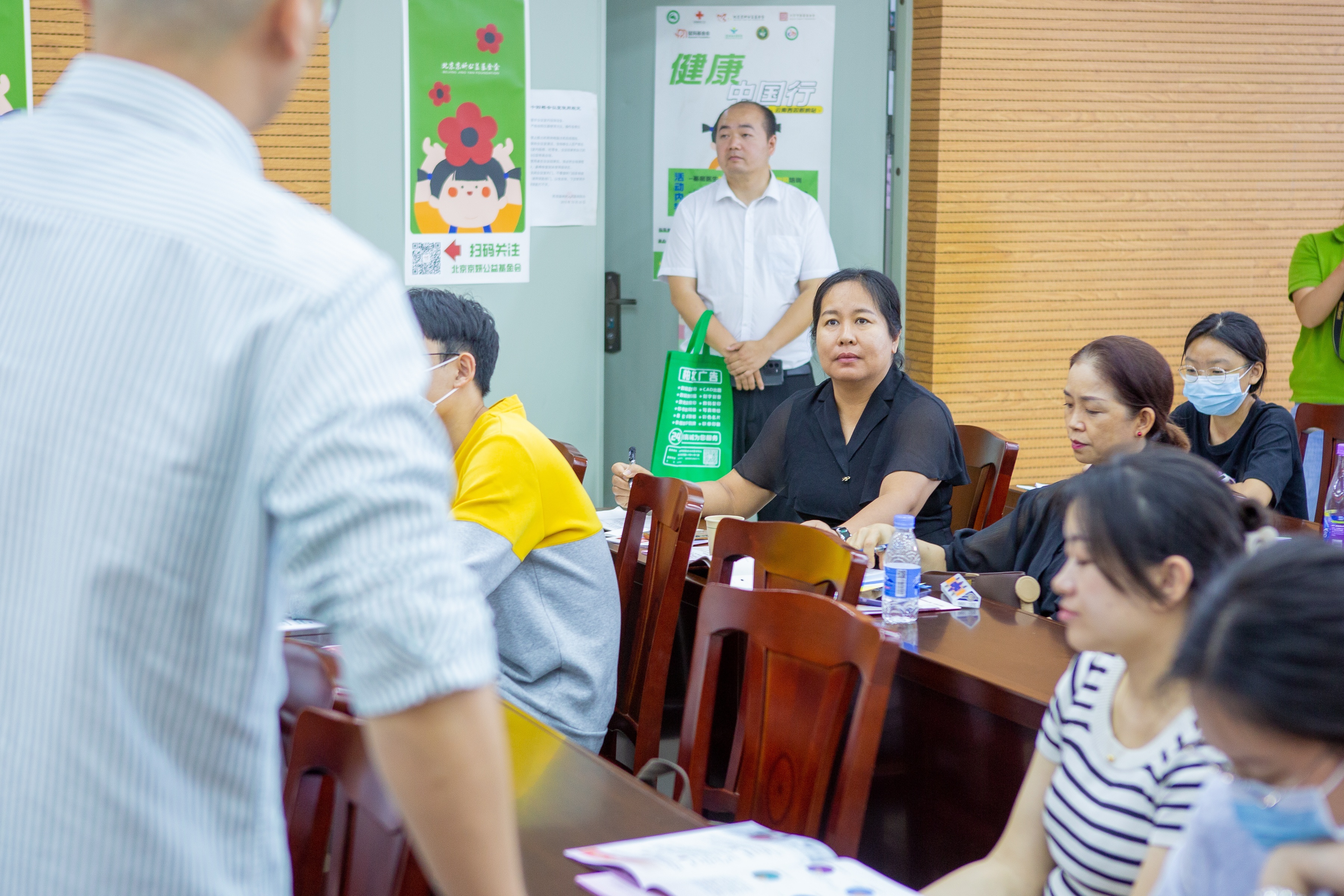
In addition to directly supporting children with thalassemia, the Beijing Jingyan Foundation has also invested significant efforts in prevention education, early screening, and improving local healthcare. We organize expert visits to grassroots hospitals for free medical consultations, arrange for volunteers to conduct outreach in towns, villages, and communities, collaborate with leading hospitals to produce educational videos and documentaries, and invite experts for live science sessions. We also organize training workshops for doctors to improve local medical services.
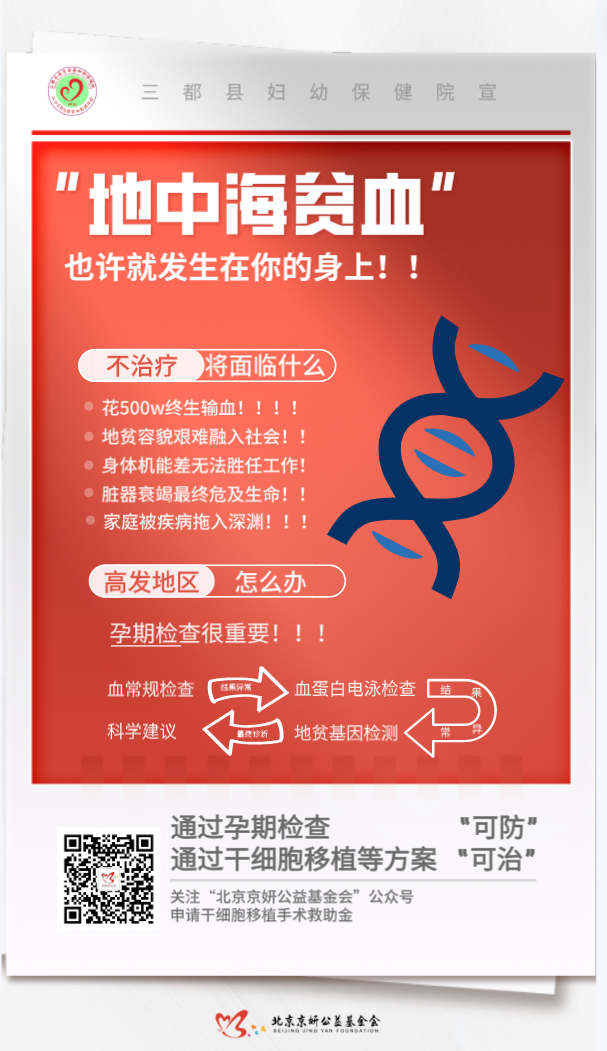
(The prevention and control poster designed by the Beijing Jingyan Foundation for the Maternal and Child Health Hospital in Sandu County, Guizhou)
The Building Love for Thalassemia Action project actively collaborates with governments, hospitals, and businesses to improve the coverage of thalassemia screening, genetic diagnosis, prenatal diagnosis, and medical intervention. We track and manage high-risk populations and encourage local governments to implement long-term prevention and control mechanisms and policies for thalassemia. The Jingyan Foundation is also doing more to support these children in its own way.
Encouragingly, both Xixi and her sister underwent successful hematopoietic stem cell transplants with the support of the Jingyan Foundation in 2020 and 2021, and have since made a full recovery.
Following their recovery, many parents have become "Jingyan Partners" and advocates for thalassemia awareness. They regularly participate in free medical consultations and educational events organized by the Building Love for Thalassemia Action project, tirelessly promoting thalassemia knowledge. Drawing from their own experiences, they encourage other parents of children with thalassemia to get screened and offer advice to couples of childbearing age on healthy childbearing practices. They also actively work to help children access life-saving bone marrow transplant surgeries.

What More Can We Do?
During our visits, we often find ourselves looking through glass at children in transplant wards—frail, with furrowed brows and vacant eyes. Years of treatment not only bring endless physical pain but have also drained their families’ savings, eroding the will of every family member. Each child with thalassemia and their family bears unimaginable economic and emotional pressures.
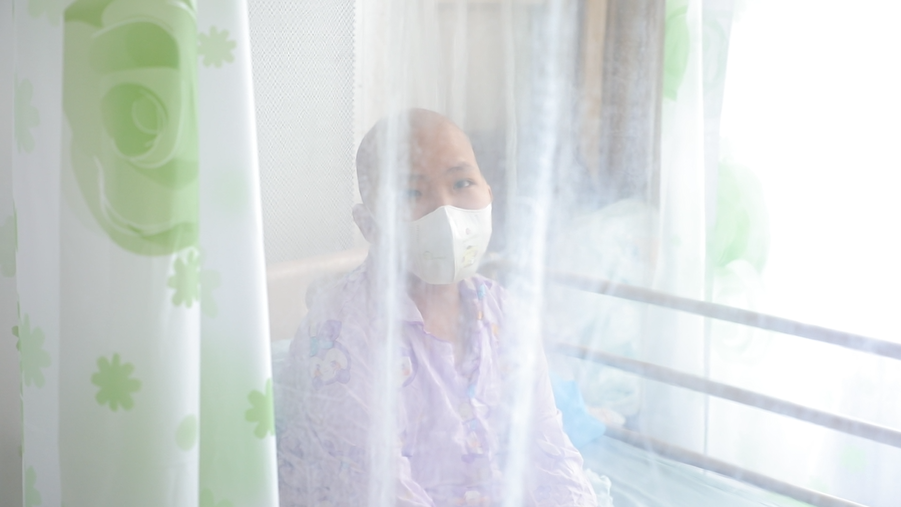
As a family-based foundation, the Jingyan Foundation places a strong emphasis on the concept of “family.” Seeing these families fight tirelessly against thalassemia, we continuously ask ourselves: what more can we do?
Children with thalassemia have stringent requirements for their environment and belongings during surgery and recovery. Their living spaces, clothing, and utensils must all be meticulously disinfected. In response, we created the "Jingyan Care Package" to donate essential items like sterilizing lamps and cabinets, helping alleviate their financial burden.
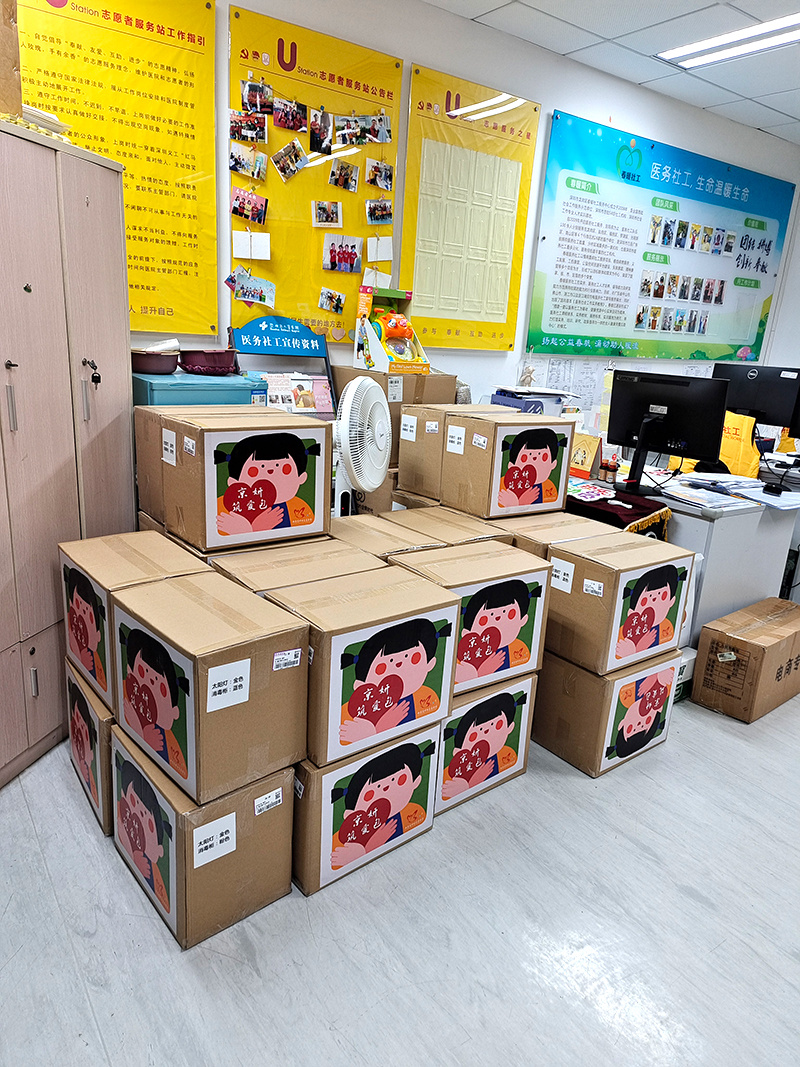
The long treatment cycles, post-operative medication, and frequent check-ups create ongoing challenges for both children and their families. These demands require frequent hospital visits. To address this, we partnered with hospitals to develop a follow-up app. With this "pocket doctor," patients can enter test results, view medication reminders, and schedule outpatient visits. Doctors also benefit from this app, as it allows them to access test results and medication information, fostering better communication between patients and healthcare providers.
The long and painful treatments steal precious childhood moments from these children, while the mounting medical expenses have already crushed their parents. These children, often more mature than their peers, find it difficult to ask for toys. Without toys, without time, without playmates, the already challenging treatment process becomes even harder. To bring some relief, we introduced the "Lele Box Plan" in collaborating hospitals, offering hospitalized children opportunities to play and learn during treatment.
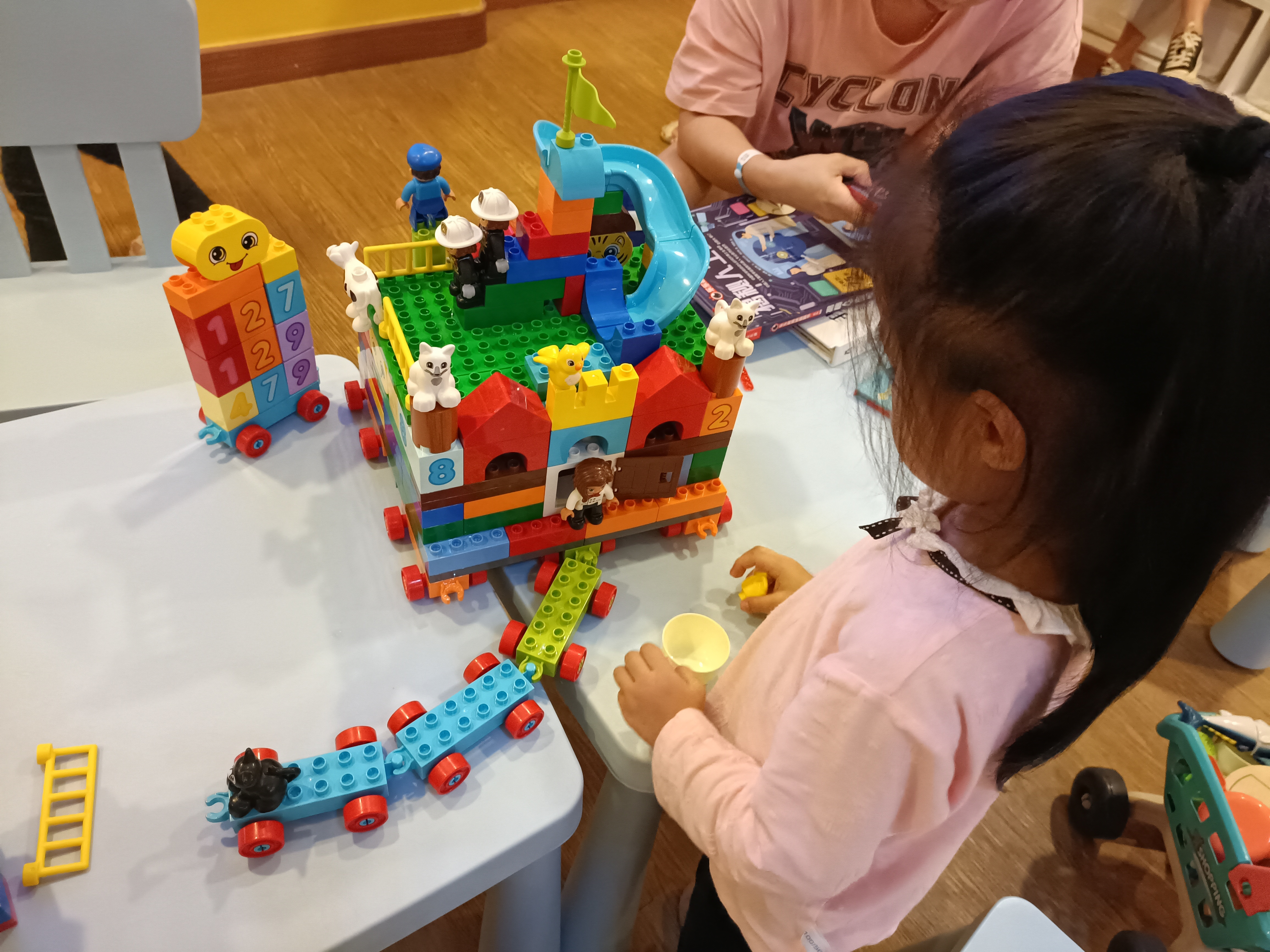
Additionally, we launched the Morning Star Plan program which extends our support beyond the children to their families. We provide scholarships, educational materials, and financial assistance to school-age children and their siblings. By helping them overcome obstacles in their educational journey, we not only aim to support their immediate needs but also hope to empower them to achieve their dreams and become meaningful contributors to society.

Towards "Zero Thalassemia"
The ultimate goal of the Building Love for Thalassemia Action project has always been to promote the prevention and eventual eradication of thalassemia. Ms. SONG Yan has frequently expressed, "Jingyan's mission has never been about how many people we save. Our true hope is that one day, we no longer encounter children suffering from thalassemia, and when that day comes, this project will no longer be needed. That is the most sincere wish and greatest meaning for all of us at Jingyan."
In 2022, the Beijing Jingyan Foundation formally introduced the “Zero Thalassemia Plan,” which focuses on two main objectives: intensifying efforts to treat existing cases of severe thalassemia to reduce the number of affected children, and collaborating with governments, hospitals, and businesses to establish a sustainable prevention mechanism. This initiative also aims to ensure the effective implementation of national-level prevention policies in high-risk regions, preventing the birth of children with severe thalassemia.

In 2023, the Foundation began transitioning from a focus on individual case assistance to exploring systemic changes, marking a key step toward the fundamental goal of "Zero Thalassemia."
Time, with its silent yet powerful passage, leads to both accumulation and breakthroughs. As the Building Love for Thalassemia Action project has already assisted over 1,000 children, the "Zero Thalassemia Plan" continues to make meaningful progress.
We hope to see greater attention, policy support, and social focus directed at thalassemia as a significant public health issue.
We strive to protect life and health, offering strength to those who feel powerless and encouraging those who are disheartened.
We hope that the day will come soon when there is no more thalassemia in the world.
Keywords:
Related News

